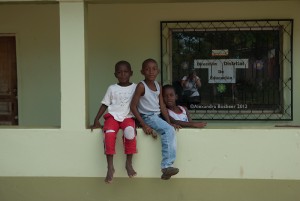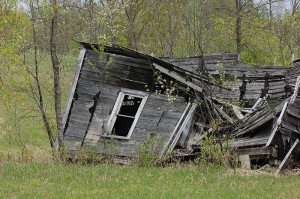The media and our way forward
I haven’t posted in some time, even though my travels have continued (through northern Europe now). I haven’t really stopped, although I do know I will be settling in a new city, in a few months’ time. so, I am still traveling, but with a different feeling as I am more familiar with the language, the food, the politics; more at home. The conclusions I form seem to need more foundation to be truly useful.

The European photographer, reflected in the window, taking (on request) a photo of local children in Honduras.
Traveling in different countries gives one a specific, snapshot approach to every place one visits. This can hold true even for cultures with which one is already very familiar. I am in the habit of quickly assembling impressions into conclusions, and of comparing the sum with other recent experiences. Many people who travel do the same. Rapid assessment can mean mistakes – well, any assessment can mean mistakes. In a rapid assessment, one simply has less time to spot and correct the mistakes. And then there are the deliberate slants or errors. Here in Amsterdam, on a single evening, I can watch a US new channel breathlessly predict the complete demise of the European Union, the BBC describe the difficulties of the Euro zone (separating the political aspect), and the Dutch TV report factually on the Greek elections. It takes a huge amount of time to even find the balanced story between all the different versions. The result is that the public is not fully informed and so relies on generalities to form opinions about issues. These generalities are often catch phrases which have been gleaned from technical areas; they represent conclusions about the average voter can’t robustly argue due to lack of expertise. So, for example, the attractive, bright theme of ‘growth’ mentioned to solve financial woes. Me personally, I understand we have huge challenges in our structures given a growing global population, increased standards of living and desire of economic justice, and yet reduced natural resources. I understand each of those, but I don’t understand how economics are theorized to work. I most certainly do not understand how growth can be envisaged not to slow or end in one way or another.
I was in Ireland during the pre-referendum campaign about the EU fiscal compact treaty, and the outrageous claims made on all sides seemed to rely on the public being uninformed. Myself, I am still unable to see how it helps people to have higher taxes that go to shore up banks, banks which have made incredibly foolish loans of millions and yet are chasing ordinary former mortgage holders, people who have given up their houses, for tens of thousands. Or how the national asset management agency gets away with declaring confidence of fairness of house values of nearly ten times the average (2004) gross salary. I suspect that I am not alone, and that many readers and writers also cannot grasp the whole picture, let alone find the best way forward.
These times, like any crisis, represent an opportunity to find a new route. We know our past path has created environmental problems. We know the earth cannot sustain an ever-growing demand of more people living better. We know we don’t want people to die young when it can be avoided, and yet we put our money into the pockets of company management who can avoid taking care of rivers and air. And we know our concept of extended and expanding growth seems to fall into hiccoughs of contraction. Rather than try to restart the past engine of growth, now is the time to find a new path.


Leave a Reply